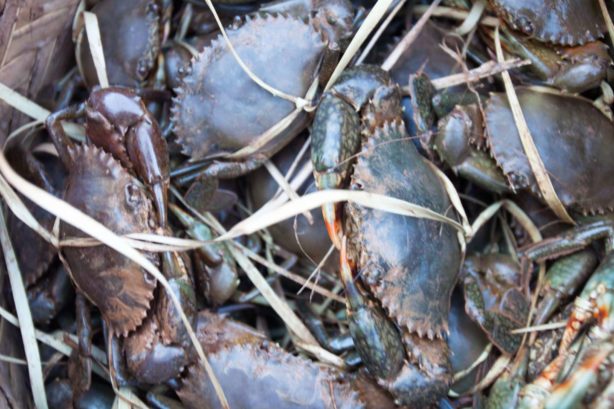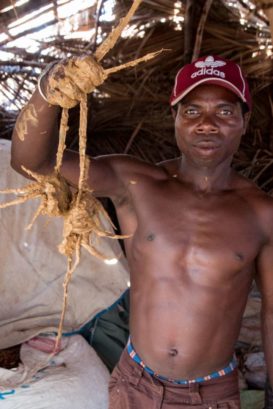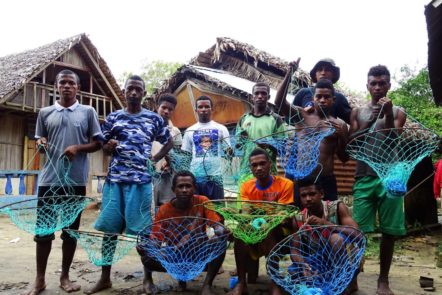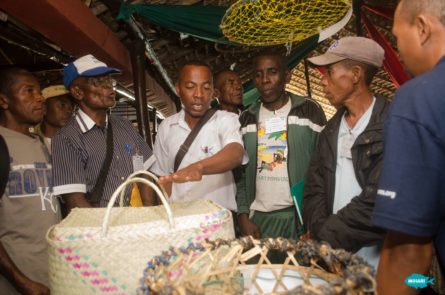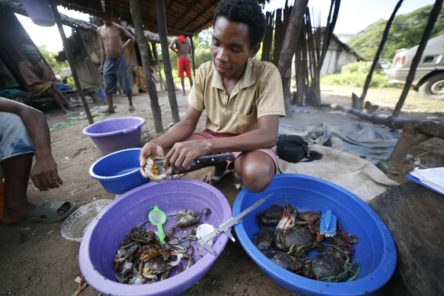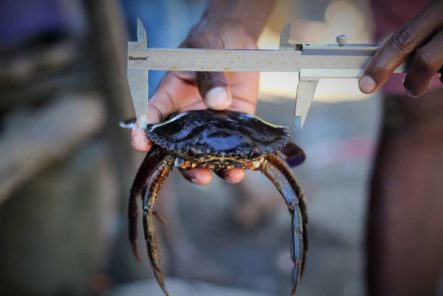If there’s a creature in Madagascar with bad PR that deserves redemption, then it is surely the humble mangrove mud crab.
Traditionally, mud crabs were collected by women and children as a way to get a little extra money, but are now fished by tens of thousand of small-scale fishers.
Once ignored by fishing communities as no more than a second-class snack, the mud crab has entered the big time as the island’s third most valuable fisheries export. High international demand, particularly from China, has led to prices for mud crabs doubling and then tripling in only ten years.
Unfortunately, this rapid growth in demand has led to unsustainable levels of fishing. Ongoing research by the Institut Halieutique des Sciences Maritime in Toliara has highlighted the decline of crab fisheries near inhabited areas, including reductions in fishing yields and in the average size of crabs.
Further evidence for falling mud crab catches has also emerged from seven years of research carried out by Blue Ventures and fishing communities in western Madagascar. Adrian Levrel, Blue Ventures’ former National Fisheries Lead, told me how he and his team began their journey with the mud crab fishers in Belo-sur-Mer:
“We wanted to come up with solutions that would protect the fishers and maintain the crab populations.”
“Inspired by our experience of supporting coastal communities to sustainably manage octopus fisheries in southwest Madagascar, we set up a similar programme in Belo-sur-Mer. It was obvious that the size of the mud crabs for sale were getting smaller and the sustainability of the fishery was under threat. We wanted to come up with solutions that would protect the fishers and maintain the crab populations.
Through the meticulous collection of data and a thorough study of the whole fishery – speaking to everyone from crab fishers to sellers, collectors and exporters – we have helped to identify some exciting ideas for how local communities could restore and sustain the health of their mud crab populations.”
Adrian and his team organised workshops, in collaboration with the Government of Madagascar, the MIHARI Network, WWF and the Wildlife Conservation Society, to bring together stakeholders across the sector to discuss the research findings and agree on ways to build a more sustainable mud crab industry. At these workshops, Blue Ventures, the Ministry of Fisheries and MIHARI launched a Good Practice Guide to help fishers, collectors and sellers use more efficient methods to obtain the maximum value from crab catches.
Adrian is thrilled that work with the Government has begun to bear fruit, with the reinstatement of a national crab fishery closure, introduced into law in January 2019, as well as a plan to review the minimum size of mud crabs that can be legally fished in 2020.
He believes all these efforts are beginning to pay off, maintaining that “the solutions in the good practice guide are already helping to reduce post capture losses along the supply chain”.
Blue Ventures is now working with the fishery sector to develop some new initiatives that Adrian thinks could make an even bigger impact, by helping fishers to find ways to stabilise price fluctuations for mud crabs and ensure they are getting a better return on their catch. One such initiative is crab fattening, where fishers keep a portion of their crab catch in pens in the mangroves and feed them for a few weeks until they are heavier and can be sold for a better price.
The Malagasy fishers are beginning to claw their way back to success. But there is a long way to go. The impact of the new crab fishery closure will depend on fully engaging fishers in the management process to ensure that they agree and comply with the rules. We know that crab populations do recover with protection but they don’t reproduce as quickly as the octopus and longer closures may be needed to protect crabs during vital stages of their breeding cycle.
In partnership with the MIHARI Network and the Ministry of Fisheries, Blue Ventures is now playing a key role in guiding crab fishery policy and practice, and expanding the support it can offer communities. From originally being recognised as the ‘octopus people’, we are now also ‘the crab people’, a moniker Adrian feels his team can be proud of.
Read more about how Blue Ventures’ crab research is guiding Madagascar’s fishery policy
Special thanks to Flora McMorrin for her editorial support with this blog.


